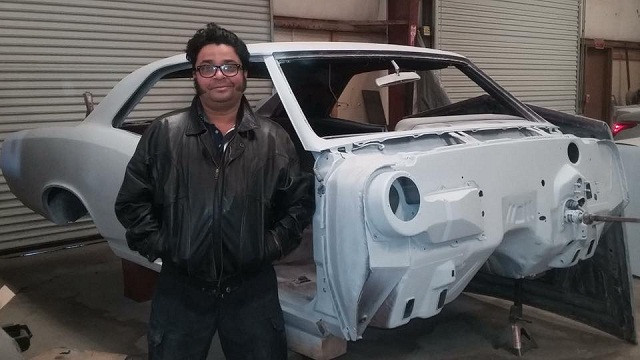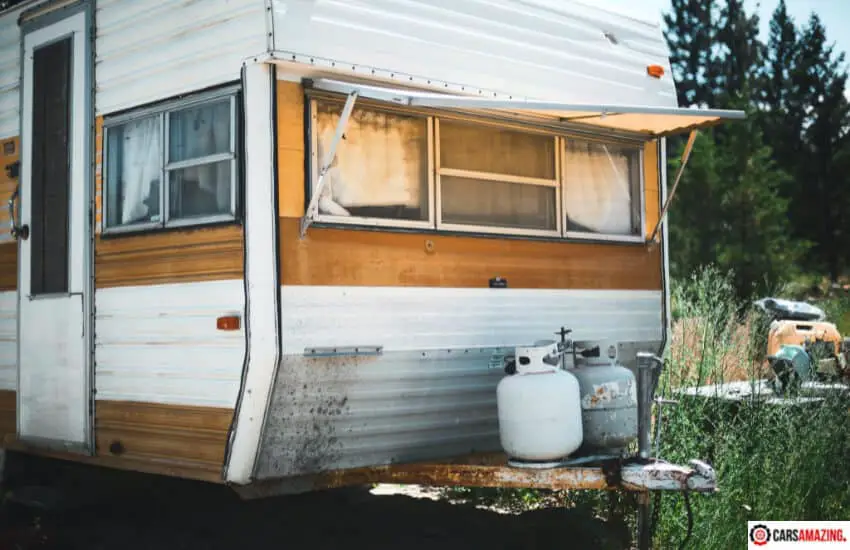Last Updated on January 29, 2023 by Leepu Da Maxim
A DOT cylinder or RV propane tank needs to be recertified. Whether it is used for a fifth wheel or travel trailer, it still needs this procedure. An inspection, cleaning, and testing should be performed periodically to detect leaks in propane cylinders, tanks, and other containers.
Key Takeaways
- Motorhome propane tanks are found on towed RVs and it stores propane fuel to power various appliances and systems of the RV
- It is mandatory to recertify the motorhome propane tanks every 12 years
- The exact time frame to recertify the motorhome propane tanks depend on the state or jurisdiction of the area where the tank is used
Propane Tank Recertification – Main Facts
| Facts | Description |
| Date Without Letter | This means that the propane tank must be recertified after 12 years from the date of manufacture. |
| Date With Letter S | This indicates that recertification is due in the next seven years after the date marked. |
| Date With Letter E | Indicates that recertification is due five years after the marked date |
| No Date | Indicates that a new propane tank or recertification is due immediately |
| Damaged Propane Tank | Damaged and rusted propane tanks cannot pass the recertification procedure. |
Do Propane Tanks For Motorhomes Expire?
At first, it is necessary to mention that propane can be obtained using a liquefied form of petroleum gas. This means that the final product is separated from natural gas and then liquefied and stored in a tank. This is a non-toxic component, but it is also colorless and odorless. The odor added to this gas is done so that the user can detect the loss of propane.
Of course, recreational vehicles and motor homes use propane gas because of its wide variety of uses. This gas is efficient as an energy source for refrigerators and preparing a campfire. Even people use this gas for space heating or simply for cooking food.
Having mentioned this, we should add that there are DOT cylinders and ASME tanks. The most popular are those that can provide 20, 30, or 40 pounds of weight. Even 250 or 500-pound tanks are available. However, this is uncommon as it is much more difficult to transport.
It is essential to consider the lifespan of each of these tanks or cylinders because any of them need to be recertified. After a certain amount of time has passed, these propane tanks expire.
The Durability Of Propane Tanks
Federal law states that after 12 years from the day of manufacture, propane tanks for recreational vehicles expire. Once a propane tank reaches 12 years, the tank or cylinder needs to be tested. This way, it can be re-qualified or removed depending on the structure’s condition.
Different permanent markings can be found on each portable or another general cylinder. Here, you’ll note the date of testing or the date of recertification.
Of course, it isn’t easy to refill a portable cylinder for those who do not have a recertification stamp. To avoid this, there are hefty fines and penalties that apply to anyone who fails to comply with this aspect of a propane cylinder. Checking out the markings on the RV propane cylinder will allow for more proper maintenance to be implemented.
When you notice a date without any letter, in about twelve years, the next recertification is due. When you notice an S after the date, the recertification is expected in the next seven years.
If we find the letter E, the recertification must be done once more in 5 years. A new cylinder or a new certification must be obtained when there is no expiration date or a later date with the above guidelines.
Only propane cylinders or tanks in good condition are likely to be recertified. On those occasions where the structure is damaged and rusted, recertification will be very difficult. The propane tank that has expired should be disposed of at the appropriate place for recycling.
How To Properly Use And Recertify An RV Propane Tank
These sites allow you to calculate the amount of BTUs and tank size used concerning different appliances and uses. This way, you can find out how much usage time the contents of each propane tank can offer and the lifespan obtained in total. Using a propane tank meter is also a great way to get incredible accuracy.
In this regard, all propane cylinders need to be recertified 12 years after their date of manufacture. Also, once propane cylinders are recertified, the following procedure must be done before 12 years. In most cases, propane cylinders must be recertified a second time within five years.
This is logical because the lifespan of a propane tank becomes increasingly worn over time. A propane tank can be exposed to malfunction or leakage throughout its entire lifespan. Malfunctioning valves, dents, or exposure to corrosive elements are also dangerous.
These make the propane tank end up more dangerous to use for a family and everyone around. These potential safety problems can be detected with the visual inspection performed during recertification. A propane tank must be recertified when the authorities require this.
The procedure to recertify a propane tank takes only 10 minutes and, in most cases, costs only $10 per tank. So, it is not a time-consuming or budget-intensive procedure.
Does Propane Gas Wear Out Over Time?
Propane itself does not wear out or spoil over time. The sealed tank or propane cylinder is more than sufficient to keep the propane gas isolated and prevent contamination with air or any components.
When the propane cylinder or propane tank is in good condition, the propane gas inside will also be in good condition. The only important thing is to have a propane cylinder or tank with no damage to its structure.
This will be enough to recertify a propane tank and refill it as many times as necessary. There is a wide variety of places where the recertification process can be performed.
All you need to do is Google the right site for this procedure with the words “propane tank certification”. It is also a straightforward procedure to do and provides safety for the whole family. When a user senses the typical odor added to propane gas, they should immediately take their propane tank in for inspection
References:
https://www.rvtravel.com/how-often-do-you-have-to-re-certify-propane-tanks/
https://www.rv.net/forum/index.cfm/fuseaction/thread/tid/25007618/print/true.cfm

Hi, I’m Leepu Da Maxim , a dedicated car enthusiast with over 10 years of experience in this field, and I’m thrilled to share my passion and expertise with fellow car enthusiasts like you. My journey began in my hometown West Jordan, Utah, where my fascination with the mechanics and design of cars sparked at a young age. Over the years, this passion has evolved into a commitment to providing accurate, insightful, and engaging information about all things automotive through CarsAmazing .

